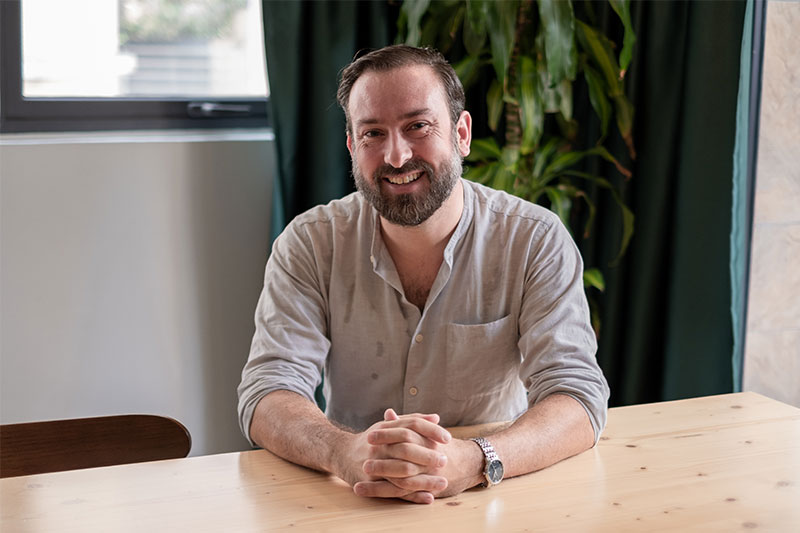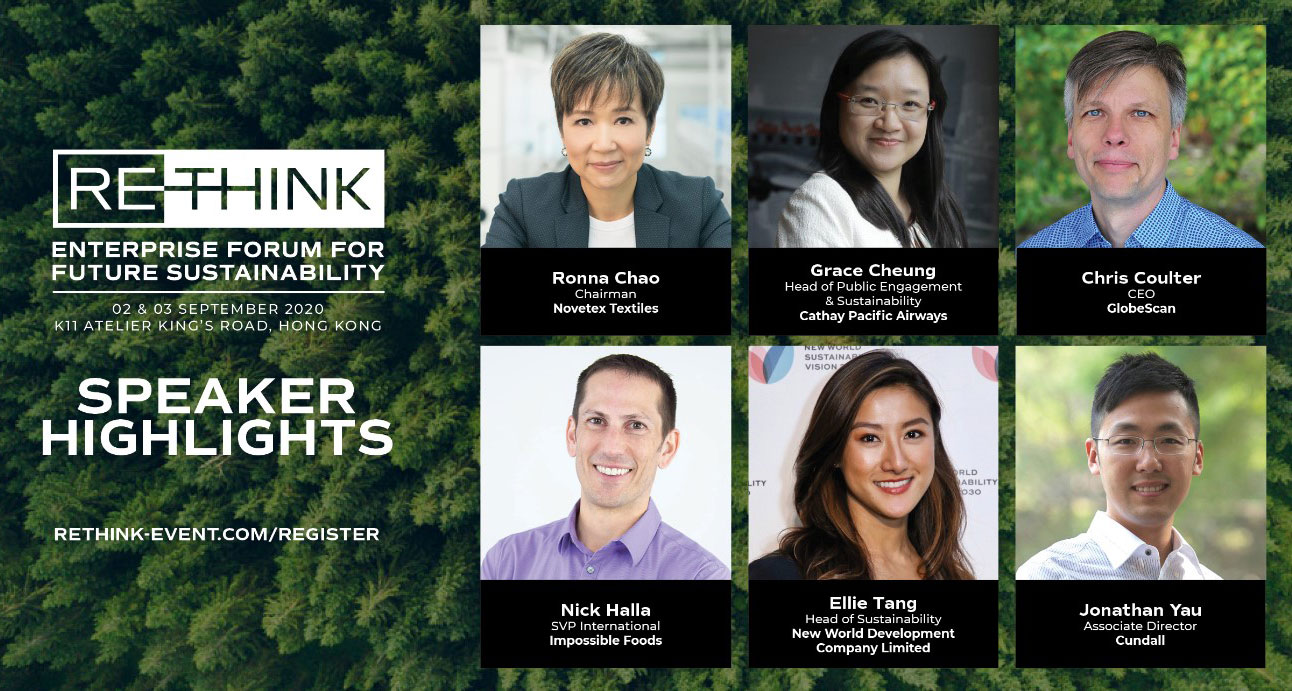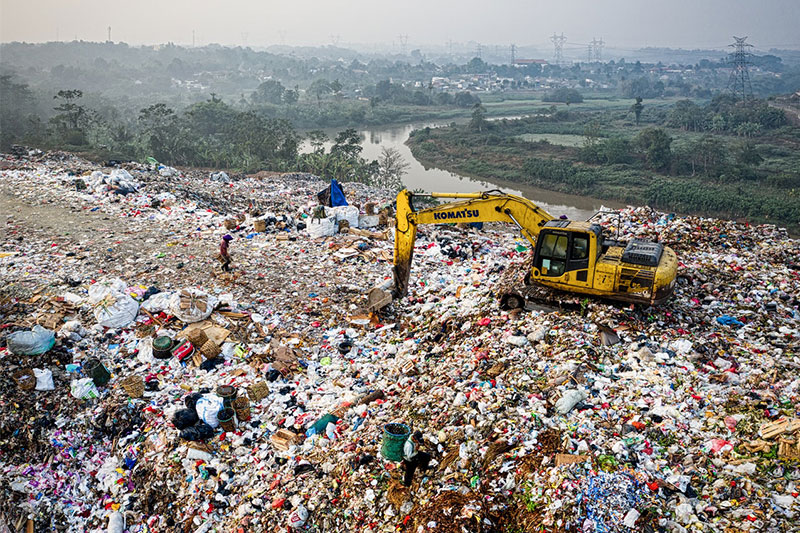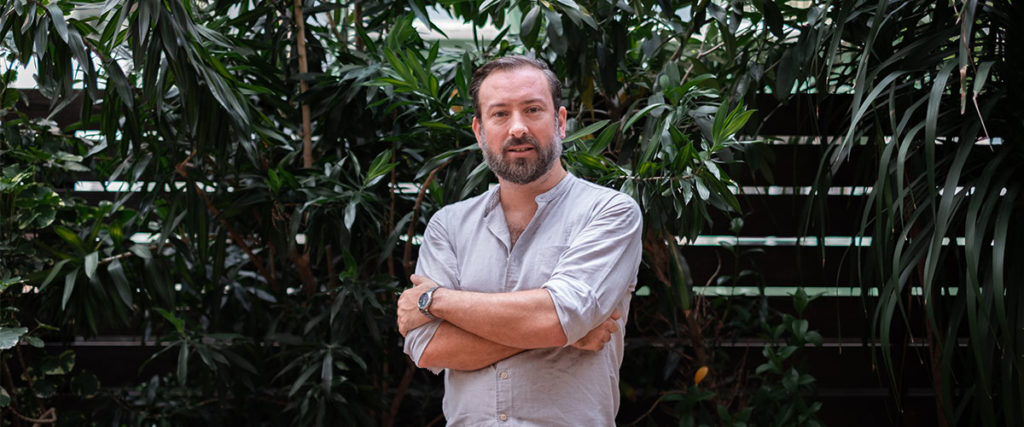Ahead of ReThink 2020, Hong Kong’s most ambitious sustainability event yet, founder Chris Brown shares his story and illuminates the common hurdles businesses in the city face when striving to become more sustainable.
For years, Hong Kong has struggled to keep a lid on its rubbish problem. Recent figures by the Environmental Protection Department (EPD) show that waste disposal rates – an average of 1.53kg per person every day –reached the worst levels since records began in 1991, with Hong Kong’s three remaining landfills expected to hit full capacity by the end of this year – a crisis compounded by delayed government action, poor infrastructure, and public complacency.
Enter ReThink: the ‘enterprise forum for future sustainability’ dedicated to revitalising the sustainability conversation and accelerating the shift towards a circular economy in Hong Kong. Boasting big-name speakers from Cathay Pacific Airways and L’Oréal, to Impossible Foods and the Ellen MacArthur Foundation, the two-day conference offers a neutral platform for businesses, government, and non-profit organisations to explore real-life solutions and harness the power of collaborative change.
ReThink is the brainchild of seasoned B2B events professional Chris Brown, who left his native England for Hong Kong in 2015 to help organise Cloud Expo Asia & Data Centre World Hong Kong, the city’s leading and largest ICT event for business. At the end of 2018, he took a massive leap of faith and poured his life savings into starting an events business that addressed the sustainability issues he saw first-hand. We sat down with Chris to learn more about this pioneering event and his thoughts on the city’s evolving sustainability community.

Tell us about the inspiration behind ReThink. What had been missing from the sustainability events that were already available?
One of the first things that struck me when I relocated to Hong Kong in 2015 was how difficult it was to separate waste here, and how prohibitively expensive it was to buy organic food for most people. I’d moved from a nice house in South London with my garden, my compost, a veggie patch, and at least five different bins for recycling – so it was all quite foreign to me. When the opportunity arose for me to leave the company I’d been working for and think about the next stage of my career, I decided to start my own events business, EnviroEvents, to address some of those difficulties I’d experienced and create an event that really had a purpose. And it was a big decision because I knew I wouldn’t be able to afford to hire a team like I’d been used to for the past 10 or so years. I was going to have to do it on my own. In hindsight, I could have gone into consultancy, but as somewhat of a ‘details freak’ whose entire life is run on spreadsheets, I knew I had the capability and tenacity to see it through. I also had a strong relationship with InvestHK who were phenomenal in supporting me throughout that process.
I took a year to work out exactly what I wanted to run an event on, and did some project work in Malaysia and Shanghai to help pay the rent. For a while, I toyed with the idea of an event that helps consumers be more sustainable. But my background was really in B2B events, so I looked into the landscape of business-oriented events that were currently available and the same few kept popping up. What I discovered was that a lot of their content focused exclusively on the ‘why’ of sustainability (‘why do we need to do it?’), and less about the ‘how’ (‘how are we going to go about it?’). None had managed to scale to attract an audience of more than a 150 or so, and it was always the same people talking (not my words but a common response when asking various sponsors of past events), and rarely did any events offer any actual advice on how change can be achieved. Talking about ‘why’ doesn’t change things, so immediately I saw an opportunity to create an event that focused on answering one of the most crucial questions for our city: How can we help businesses in Hong Kong accelerate change towards a more sustainable future?
As someone with no background in sustainability, what was the design process like for you?
I don’t mean to be self-deprecating when I say this, but essentially, I was no one. I was a guy with an idea. Sure, I had a proven track record of running successful events in the UK and Asia, but in terms of sustainability, I was just another guy coming along thinking he could change the world. So, the only way I was going to build credibility quickly was by designing ReThink with a lens of collaboration. I needed those collaborations to provide me with insight, guidance, and access to changemakers and gatekeepers. But I also made it two-way. It wasn’t just about what I could get from working with an NGO or professional organisation, but about what they wanted out of it too. What were their aims and objectives? How did they want to be seen to fit into the sustainability ecosystem and engage with those looking for advice and guidance? By listening to what people much more experienced and knowledgeable around sustainability had to say, and offering them a collaborative and neutral platform with which to say it on, I was able to take the content in an entirely new direction.
Why focus on corporates?
Right from the outset, I wanted to make sure that ReThink would deliver a tangible impact. So, I created a stakeholder map of the entire business ecosystem to identify who I needed to bring together to catalyse change – and it was huge. There were corporates and enterprise-level organisations, SMEs, government, NGOs, community groups, suppliers, and service providers… I knew there was no way I could adequately provide a valuable event for all of them with my limited resources. That’s when I reached out to The Purpose Business, explained the dream (which wasn’t particularly well-defined at that point) and together we decided that the best way to ‘move the needle’, as they say, was by focusing on corporates and brands. Out of most stakeholders in Hong Kong, corporates have the most resources. They’re more likely to have designed sustainable development pathways. They’re more likely to be investing in human resources to deliver that change. They’re also attractive; people want to connect with corporates and be part of their value chains. And so, if we could design an event that spoke predominantly, but not exclusively, to corporates, we’d be able to tap into and leverage that support, allegiance, and buy-in.

What are some of the biggest obstacles Hong Kong corporates face in embracing sustainability?
Being sustainable is a huge commercial opportunity for businesses. It’s more efficient, it’s cost-saving, you attract new customers, and drive new revenues. However, actually putting sustainability into practice, even when you’re well-resourced, is far easier said than done because you’re having to deploy change within the confines of the infrastructure you find yourself in – and that your suppliers, employees, and customers also find themselves in.
I think one of the biggest obstacles for change in Hong Kong is awareness of the problem. When ReThink was still in the brainstorming phase, I wrote a mini-questionnaire (initially in English, which didn’t do me any favours) and went around Causeway Bay and Wan Chai for two weeks asking local business owners what ‘sustainability’ meant to them. And generally, the answer is not a lot. I found there was some awareness of a global environmental problem, but little understanding of the impact that it would have on their business specifically nor Hong Kong as a whole. No real grasp of what a ban on single-use plastics or certain types of packaging might mean for their supply chain. All they knew was that they put their waste out front, it gets picked up and taken away, and it goes somewhere.
Of course, we’ve also had two pretty significant obstacles recently in the form of social unrest and COVID-19. It doesn’t matter if you’re a family or startup or corporation, these have been extraordinarily challenging times and the economic downturn has only just begun. In order for businesses to change, there needs to be levers for change. These include stakeholder demand for more sustainably sourced products, more efficient and equitable services and solutions, regulatory intervention, as well as an organisation’s awareness of the future and their approach to adaptation and resilience. Without these, the cost of doing the ‘right thing’ will always appear more expensive.
Let’s delve deeper into the role of government intervention here. Is sustainable development a priority in Hong Kong? How can we keep sustainability high on the agenda when it’s continually being overshadowed by issues like COVID-19 and the national security law?
You get conflicting views on whether sustainability is ‘relevant’ right now in Hong Kong. There are commentators who believe that COVID-19 brings other global issues, like the environmental crisis, into focus so that people will hesitantly realise that things have to change. But without the kind of government intervention you see in Europe, for instance, it’s very easy for businesses to put sustainability on the backburner. While I’m sure these policies will come in time, I can’t imagine that we’ll be hitting our 2030 carbon emissions target (which we’re obliged to do under the Paris Agreement) at this rate. In fact, just last month, the Municipal Solid Waste charge bill was withdrawn from Legco, effectively undoing years of work to tackle Hong Kong’s waste crisis. As I understand it, the bill was a decade in the making and would levy a charge on households and businesses to have their rubbish collected, separated, and recycled.
That being said, SMEs make up over 98% of business establishments in Hong Kong and contribute enormously to our GDP. Sustainability is societal as much as it is environmental, so I believe that businesses, with the help of NGOs, also have a responsibility to ‘give back’ and drive change at all levels toward a more equitable and environmentally sound Hong Kong.

What can corporates look forward to most at this year’s ReThink event? How will it equip them to overcome those obstacles you mentioned before?
One of the unique benefits of attending ReThink is the opportunity to draw inspiration from cross-industry stakeholders, and instigate collaborations with like-minded business leaders and community champions. Our innovation showcase, which is in partnership with the Hong Kong Science and Technology Park this year, also allows delegates to engage with live displays and meet providers with deployable technology.
Crucially, ReThink addresses themes and topics that are relevant to all businesses, such as ‘Sourcing & Manufacturing’, ‘Waste & Resource Management’, ‘People & Culture’, and ‘Distribution & Changing Markets’. One panel I’m especially excited about, for example, is called ‘Marketing the Good’ which looks at how to communicate the good work your organisation is doing with customers and stakeholders in ways that matter to them. Again, each panel is geared towards answering the ‘how’, and comes with ‘learnings’, real-life enterprise case studies, and ‘post-event actions for delegates’ that go beyond the Rs of Reduce, Reuse, and Recycle. It is hoped that Marketing, Procurement, Finance, and HR leaders can take these insights back to their teams and adopt the language of their sustainability counterparts so as to amplify their ambitions and accelerate the change.
ReThink doesn’t start until September, but it is already making waves for disadvantaged communities in Hong Kong. Can you tell us about that?
Absolutely. So, one way we’ve been able to demonstrate our impact right off the bat is by donating 100% of delegate fees to charity. This year, we’re supporting Feeding Hong Kong and Soap Cycling, and it was amazing to make an initial donation of HKD 30,000 (each) recently. I was later informed that it would provide 300 people with hygiene kits that lasted for two months and deliver 6,000 meals to needy communities around Hong Kong – and that’s just from the fees we’ve collected so far! So, I think all of our delegates, sponsors, speakers and partners should feel incredibly proud for having contributed towards this achievement.
Hope for the future?
We’ve still got a lot to prove this September, but I hope that as we scale and add new themes each year, we can open the door to an even wider profile of delegates. Eventually, we’ll also have simultaneous translations of English and Cantonese to appeal to local SMEs, and maybe even an urban garden so that people can come and get their hands dirty! The ultimate goal is for ReThink to become a showcase of innovation and a 360’ ecosystem event where we help all businesses integrate sustainable practices into every stage of their value chain, making it a core competency, not an outlier.
To receive general news and updates on ReThink 2020, visit www.rethink-event.com.
Related Articles
K11 Musea: Is This USD 2.6 Billion Sustainability Mall Worth the Hype?
Christina Dean: The Woman Leading a Global Movement in Fashion Sustainability





